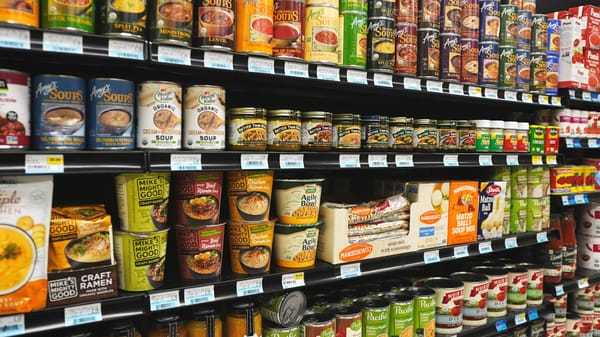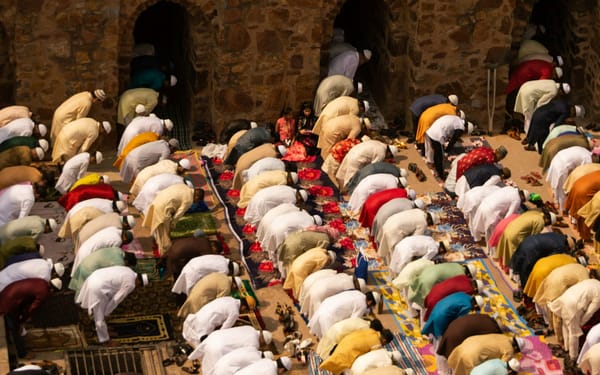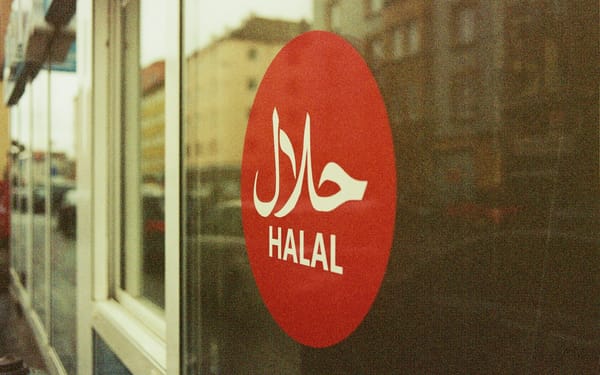What is Halal Meat? A Complete Guide for Muslims

As Muslims living in the West, finding authentic halal meat can sometimes feel like a challenge. But understanding what makes meat truly halal goes beyond just spotting a certification logo at your local grocery store.
Whether you're a new Muslim, someone looking to be more conscious about your food choices, or simply want to better understand halal requirements, this guide will walk you through everything you need to know about halal meat.
What Does Halal Mean in Islam?
Halal (حلال) is an Arabic word meaning "permissible" or "lawful" under Islamic law. When it comes to food, halal refers to anything that Allah has allowed us to consume according to the Quran and Hadith.
By default, all foods are considered halal except those specifically prohibited in Islamic texts. For Muslims, eating only halal food isn't just a dietary preference – it's a religious obligation that helps maintain spiritual purity and shows obedience to Allah's commandments.
The concept of halal also encompasses tayyib, meaning "good, clean, and wholesome." This means our food should be safe, pure, and produced ethically. Think of it as eating with both spiritual consciousness and ethical responsibility.
What the Quran and Hadith Say About Halal Meat
Islamic dietary laws are clearly outlined in our holy texts. The Quran specifically forbids Muslims from consuming:
Prohibited items include:
- Pork and pig products
- Blood in any form
- Carrion (animals that died naturally)
- Animals slaughtered while invoking names other than Allah's
As Allah says in Surah Al-Baqarah 2:173: "He has only forbidden you what dies of itself, blood, the flesh of swine, and that over which any name other than Allah has been invoked."
The Quran also requires us to mention Allah's name during slaughter, emphasizing the spiritual aspect: "Therefore eat of that on which Allah's name has been mentioned..."
Our beloved Prophet Muhammad (peace be upon him) also gave clear guidance on treating animals with kindness. He said: "When you slaughter (an animal), slaughter well. Let each of you sharpen his blade and spare suffering to the animal."
This hadith shows us that halal isn't just about what we eat, but how that food is obtained – with mercy, respect, and consciousness of Allah.
The Halal Slaughter Process (Zabihah)
Authentic halal meat comes through a specific ritual slaughter called zabihah. This process has both spiritual requirements and strict technical guidelines:
Blessing and Intention
The slaughter must be performed by a mentally sound adult Muslim who invokes Allah's name at the moment of slaughter. Typically, they recite "Bismillah, Allahu Akbar" ("In the name of God, God is Greatest").
This dedication sanctifies the act, reminding us that taking a life for food is permitted by Allah and must be done with gratitude and humility.
Sharp Knife and Swift Cut
The animal is laid down gently, and a very sharp knife is used to make one quick cut to the throat. This cut slices the windpipe, jugular veins, and carotid arteries in one swift motion.
This technique causes an instant drop in blood pressure, quickly rendering the animal unconscious with minimal suffering. Islamic law emphasizes that the knife should be extremely sharp and not sharpened in front of the animal to avoid causing distress.
Complete Blood Drainage
All blood must be drained from the carcass. This is both a spiritual requirement (since consuming blood is forbidden) and a hygienic practice, as blood can carry impurities and bacteria.
Animal Welfare Standards
The animal must be alive and healthy at the time of slaughter. It should not have been strangled, beaten, or abused, and should have received proper care beforehand.
Islamic law even requires that no animal witnesses another being slaughtered, to reduce stress. Any mistreatment makes the meat haram due to the sin involved.
Understanding Halal Certification Worldwide
Because halal is so important to Muslims, a comprehensive certification industry has developed to assure consumers that products meet Islamic standards. However, standards can vary between countries and organizations.
United States Certification
In the U.S., there's no single government halal authority, but the USDA requires that any meat labeled "Halal" must be certified by an appropriate third-party organization.
Organizations like the Islamic Food and Nutrition Council of America (IFANCA) and the American Halal Foundation (AHF) provide this service. They verify everything from ingredients to processing methods to ensure products are truly halal.
United Kingdom Standards
The UK has two prominent halal certifiers: the Halal Food Authority (HFA) and the Halal Monitoring Committee (HMC).
HFA allows reversible stunning before slaughter, while HMC requires no stunning at all. Both ensure Muslim slaughtermen invoke Allah's name and prevent contamination with haram substances.
Malaysia's JAKIM System
Malaysia has one of the world's most comprehensive halal certification systems through JAKIM (Department of Islamic Development Malaysia).
Their requirements are extremely rigorous, covering everything from animal feed and farm conditions to packaging. Malaysia's halal logo is globally respected, and many companies seek JAKIM endorsement to access Muslim markets worldwide.
How to Identify Authentic Halal Meat
When shopping for halal meat, here's what to look for:
Look for Certification Logos
Most authentic halal products will display a halal symbol or logo on the package. This could be a simple Arabic "حلال" (halal) inside a symbol, or the trademarked logo of a certification body.
The logo should ideally include the name of the certifying organization nearby. If you just see "Halal" without identifying who certified it, be cautious.
Check the Certifier's Authenticity
You can contact or check the website of the certifying body mentioned on the package. Most reputable agencies have online directories of certified products.
Visual Cues and Labels
Some products explicitly state "Zabihah Halal" (meaning hand-slaughtered according to Islamic ritual) on the label. For fresh meat at butcher shops, look for certificates displayed on the wall.
Don't hesitate to ask your butcher how the meat is sourced – genuine operators will be transparent and even proud to discuss their halal practices.
Avoid Misleading Terms
Be aware that terms like "Halal-style" or "Muslim-friendly" are not regulated and don't guarantee the food is actually halal. Only proper halal certification can assure that meat meets Islamic requirements.
Why Halal Matters: More Than Just Food
For us as Muslims, halal meat carries significance that goes far beyond nutrition:
An Act of Faith
Consuming only halal is a form of worship and obedience. It's part of living our faith in daily life, building spiritual purity and showing that we follow Allah's commands in everything we do.
Ethical Treatment of Animals
Islam showed concern for animal welfare long before modern animal rights movements. Halal slaughter, when done properly, reflects our commitment to humane treatment and minimizing suffering.
The act of saying "Bismillah" reminds us that any life taken is by Allah's permission, inspiring reverence and restraint.
Quality and Health Benefits
Many Muslims find halal meat to be higher quality because of the careful processing and blood drainage requirements. The prohibition against consuming blood and carrion means halal meat comes from healthy, well-treated animals.
Community and Identity
For Muslims living in non-Muslim majority countries, seeking halal meat helps maintain religious and cultural identity. It connects us to our community and allows us to enjoy diverse cuisines while staying within religious bounds.
The Growing Halal Market
The global halal food market is booming, reflecting both the growing Muslim population and increasing awareness among non-Muslims:
- Nearly 2 billion Muslims worldwide drive demand for halal products
- The global halal market is estimated at over $2 trillion USD
- In the U.S., the halal food market has grown significantly, with Nielsen reporting 15% growth between 2012-2015
- Even non-Muslim consumers increasingly choose halal for perceived quality and ethical production
Common Myths About Halal Meat Debunked
Let's clear up some misconceptions:
Myth: "Halal is just a prayer over meat"
Truth: Halal encompasses the entire process from animal welfare to slaughter method to processing. The blessing is one important component, but halal requires meeting all Islamic requirements throughout the supply chain.
Myth: "Halal slaughter is cruel"
Truth: Islamic law prioritizes animal welfare. When done properly, halal slaughter uses a very sharp knife for a swift cut that renders the animal unconscious within seconds. Many halal certifiers also allow reversible stunning to further minimize any potential suffering.
Myth: "Halal isn't regulated"
Truth: Reputable halal meat comes with extensive certification, audits, and oversight. In many countries, false halal labeling is illegal and subject to consumer protection laws.
Myth: "Halal is only for Muslims"
Truth: Halal meat is simply meat prepared to certain standards and can be eaten by anyone. Many non-Muslims choose halal products for perceived quality and ethical production standards.
Finding Halal Options in Your Community
Living in the West doesn't mean compromising on halal standards. Here's how to navigate:
Local halal butchers often provide the most reliable options and can explain their sourcing and certification practices.
Major supermarkets increasingly carry halal sections with properly certified products from established brands.
Halal restaurant finder apps can help you locate dining options when eating out.
Community recommendations from fellow Muslims in your area are invaluable for finding trusted sources.
The Bottom Line
Understanding halal meat helps us make informed choices that align with our faith while living in diverse communities. True halal meat represents the intersection of religious obedience, ethical treatment of animals, and quality food production.
Whether you're shopping at your local grocery store or explaining halal to non-Muslim friends, remember that halal is ultimately about consciousness – being mindful of what we consume and how it reaches our table.
As Muslims in the West, we're blessed to have increasing access to authentic halal options. By understanding what makes meat truly halal, we can confidently make choices that nourish both our bodies and our souls, Inshallah.





